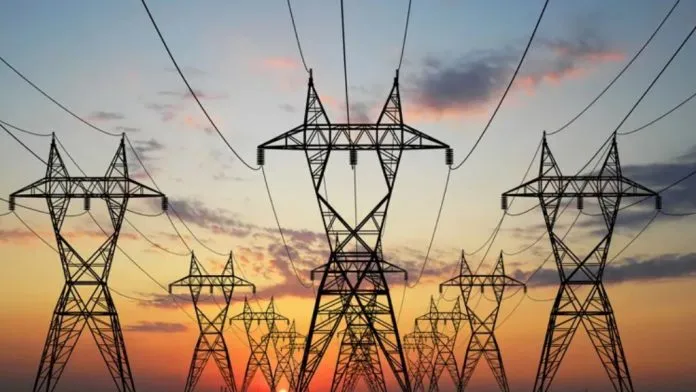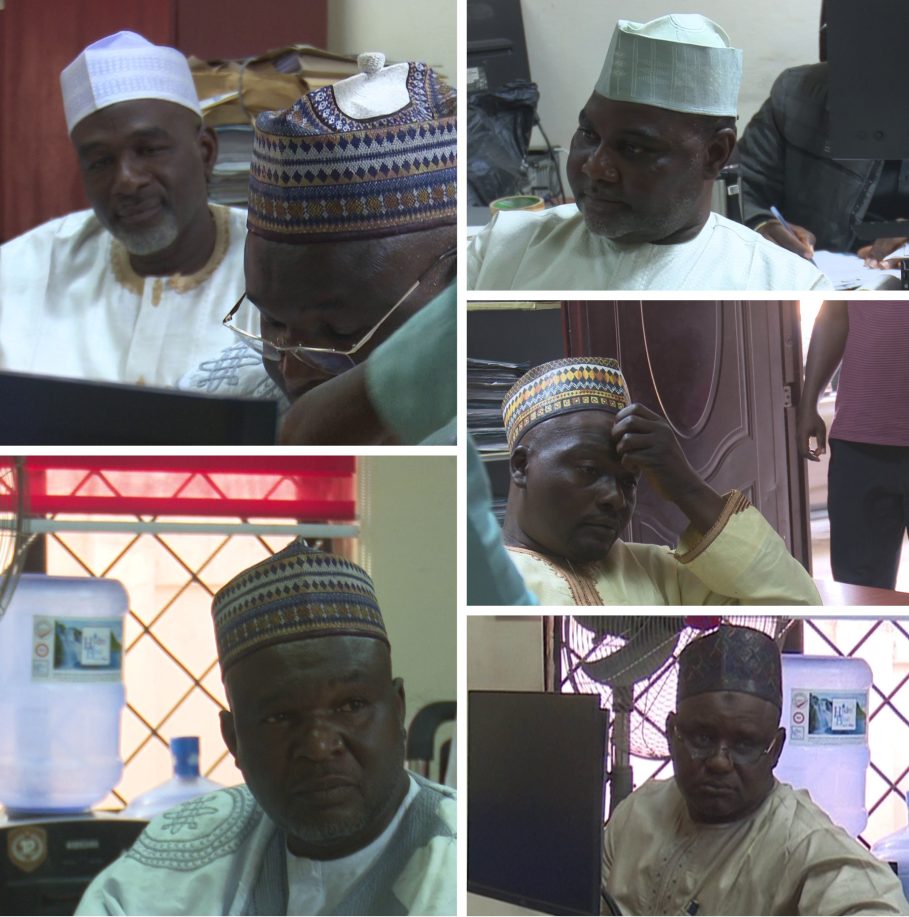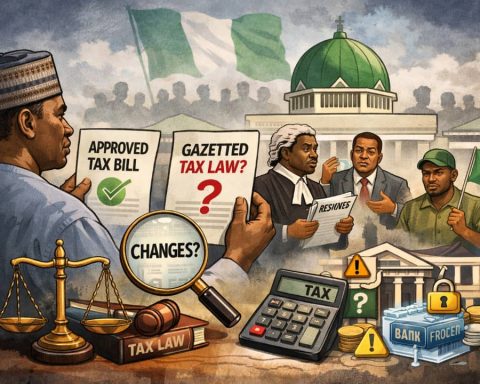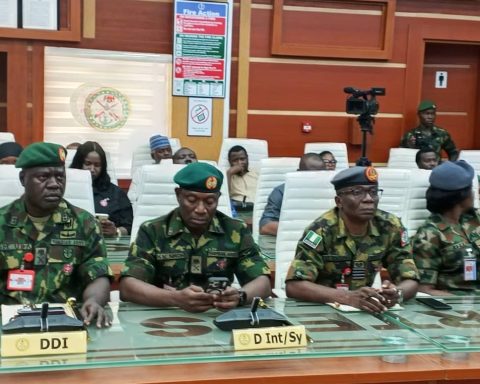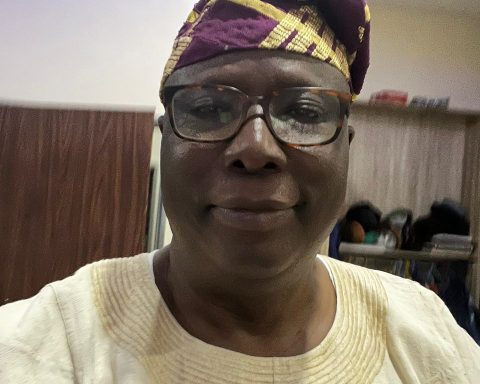What is in a name? The rose by any name will smell as sweet, says Shakespeare. During former President Muhammadu Buhari’s tenure, the term banditry was borrowed to address all cases of terrorism, kidnapping, unknown gunmen, ritual killing, etcetera. It appeared that the name doused the odium faced by government in dealing with the activities of criminals mostly alleged to be Fulani herders. Perhaps learning from that trend, the Transmission Company of Nigeria (TCN) appears to have borrowed another byword for national grid collapse – line trippings.
On January 11, 2025, the national grid looked to have suffered another major collapse, resulting in widespread blackouts that affected households and industries. The TCN, however, attributed the recent outages to “trippings,” citing technical issues such as “frequency surges”.
Join our WhatsApp ChannelThis incident marks the 13th collapse in the past 13 months. Reports indicate that power generation plummeted from over 2,100 megawatts to approximately 390 megawatts shortly after the collapse of the Benin-Omotosho line. With the collapse, TCN, through its General Manager for Public Affairs, Ndidi Mbah, continued emphasising “trippings” rather than a “national grid collapse.” TCN clarified that these power disruptions were due to specific transmission line failures and maintained that the grid remained operational despite outages affecting certain areas, such as Lagos. Yet, it is not clear why TCN is emphasising “trippings” instead of acknowledging a “national grid collapse,” especially since there has been no explicit directive from the government to avoid using the term “grid collapse.”
Understanding “Trippings” vs. “Grid Collapse”
The Transmission Company of Nigeria defines “trippings” as automatic shutdowns of transmission lines designed to prevent further issues when faults occur. This differs from a “grid collapse,” which implies a total failure of the entire electrical system. Although TCN has not specified the exact number of previous trippings, it has indicated that such events occur regularly, leading to localized outages without resulting in total system failures. In response to multiple trippings, TCN has recently communicated its commitment to improving the reliability of the national grid through infrastructure upgrades, preventive maintenance, and enhanced public communication.
READ ALSO: Between Our National Greed And The Frequent Power Grid Collapse
In December 2023, the power company announced plans to complete 53 ongoing power projects worth approximately N104 billion by May 2024. According to Mathew Ajibade, TCN’s Programme Coordinator, these projects aim to enhance electricity transmission capacity and include various upgrades such as power transformers and reconductoring of transmission lines. Despite these efforts, TCN has yet to prevent power failures, whether termed trippings or collapses; thereby causing doubt on the main problems within Nigeria’s power sector.
Public Distrust in TCN
Public perception of the power sector in Nigeria is overwhelmingly negative, with a significant portion of the population expressing distrust in the reliability of the national grid. A survey conducted in October 2024 revealed that over 81.8% of respondents considered the grid “somewhat unreliable” or “very unreliable.” The frequent blackouts have exacerbated these concerns, particularly following the first major incident of 2025 on January 11.
Recently, Mr. Ola Olukoyede, Chairman of the Economic and Financial Crimes Commission (EFCC), linked these frequent collapses to corruption within the power sector. During a visit on November 12, 2024, he stated that contractors often use substandard materials for electrical equipment, leading to persistent failures and outages.
This sentiment resonates with ordinary Nigerians who express frustration over technical explanations for outages and believe systemic corruption is a root cause. Social media platforms further reflect this notion with users demanding accountability and transparency regarding how funds allocated for power projects are managed.
Trippings or Collapse: Symptoms of Systemic Failures?
The frequent “trippings” within Nigeria’s power system highlight systemic failures stemming from significant challenges such as ageing infrastructure, inadequate maintenance, and corruption. A report from the Nigerian Electricity Regulatory Commission (NERC) indicated that the grid collapsed 105 times over the past decade, with 12 collapses and the recent making it 13 occurring since President Bola Tinubu took office. Public figures like Peter Obi have identified these collapses as indicators of deeper issues in government management of the energy crisis.
Despite borrowing over $3.23 billion to address electricity problems, Nigeria continues to struggle with inadequate power production. Factors such as energy theft, vandalism of transmission towers, and poor coordination among generation and distribution companies exacerbate instability. The report reveals that only 13% of Nigerians enjoy reliable electricity, costing the economy approximately $26 billion annually due to unreliable power supply. These findings underscore an urgent need for reforms and investments aimed at improving Nigeria’s electricity supply reliability and access.
The Impacts of the Shift in Narrative: From “Collapse” To “Tripping”
The shift in narrative from “collapse” to “tripping” concerning Nigeria’s power outages significantly impacts the country’s energy credibility. Citizens cannot be blamed for assuming that TCN aims to downplay the severity of incidents; this framing raises scepticism among those frustrated by chronic outages.
READ ALSO: Power: Nigerians In Dilemma Of National Grid Collapse And High Fuel Cost
The distinction fails to address systemic failures and vulnerabilities within the power infrastructure, undermining trust in energy management. Internationally, this narrative could deter potential investors who perceive a lack of transparency and accountability within Nigeria’s energy sector. Ultimately, these ongoing issues highlight an urgent need for reforms aimed at restoring confidence in Nigeria’s energy landscape.
To regain public trust in Nigeria’s power sector, TCN and the government must prioritise transparency and accountability. This includes openly communicating plans for infrastructure investments and operational improvements while actively engaging with communities affected by power outages.


